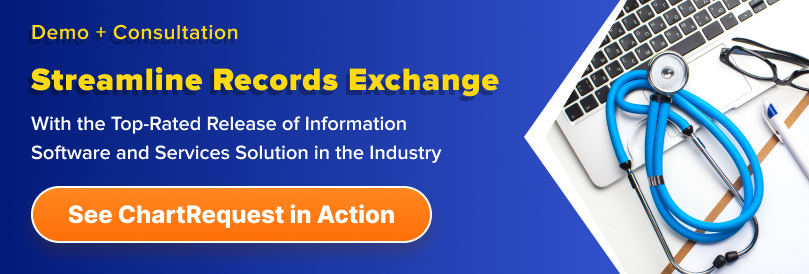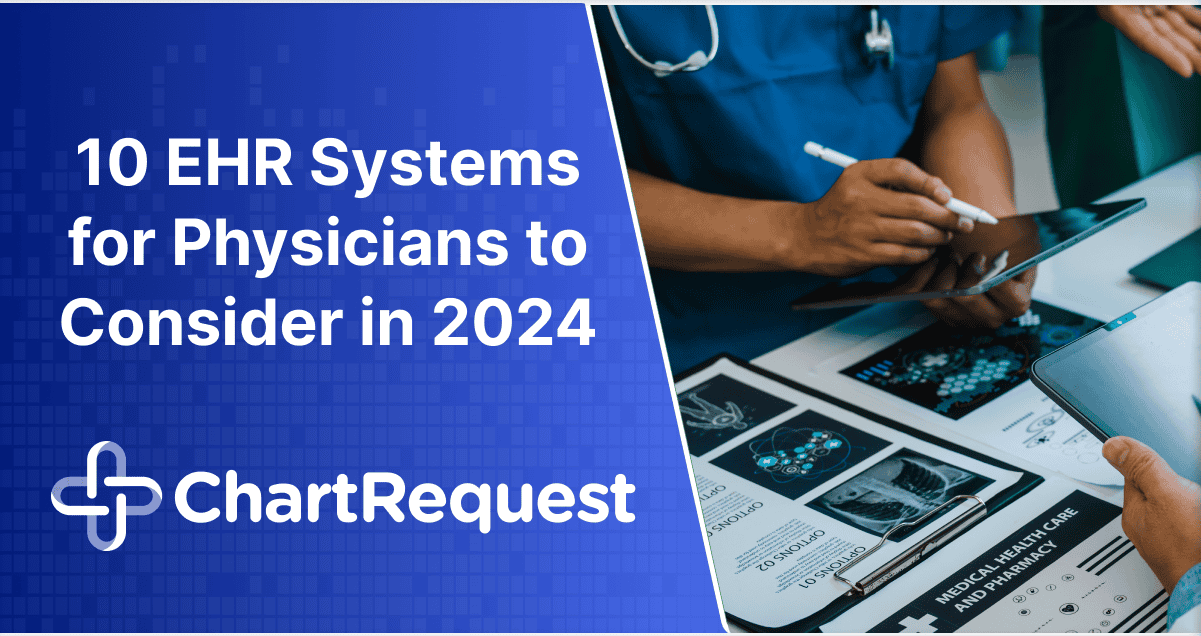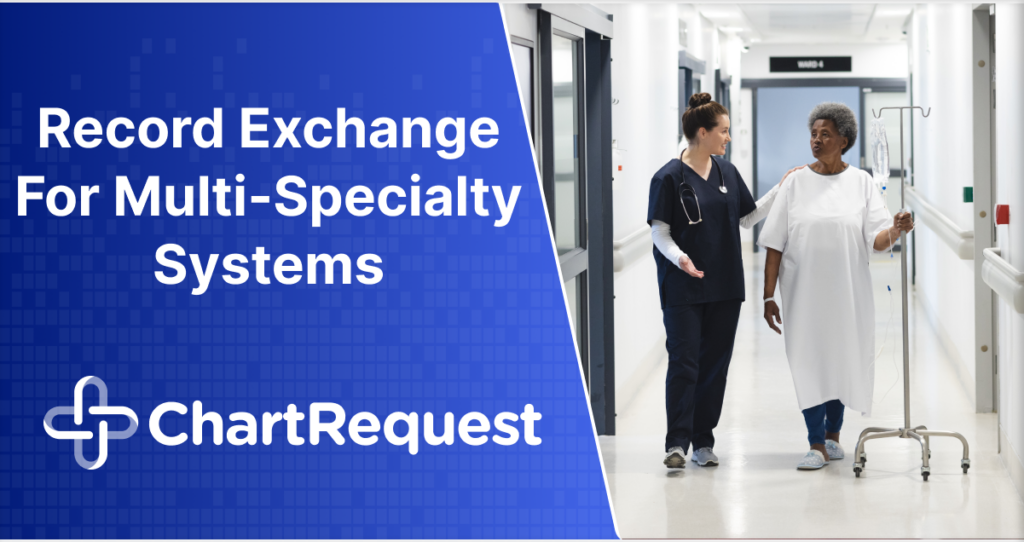According to an industry survey, six in ten healthcare professionals agree that EHR systems significantly help them improve patient treatment and clinical outcomes. The application of this reporting tool revolutionizes how medical professionals, patients, and insurers interact during routine record requests.
A high-end EHR system enhances more than interoperability; it will also help your staff comply with the Health Information Technology for Economic and Clinical Health (HITECH) Act. This legislation incentivizes the meaningful use of EHRs to reinforce the privacy provisions of HIPAA.
Moreover, choosing an efficient EHR system can significantly reduce in-office paperwork and allow your staff to focus on patient-centered care. These electronic records utilize automated technology to minimize the risk of human error and data interceptions during the recording process, potentially saving physicians and staff hours of productivity.
A national survey shows that using EHR systems has significant benefits in ambulatory care. 82% of doctors say these resources boost their clinical decisions, while 92% find they improve communication with peers and patients. Additionally, 82% noticed a drop in medication errors.
It’s worth noting that first-year doctors spend about 87% of their work time at the computer — not with patients. An efficient system can reduce your employee’s time in front of the screen and allow them to focus on front-facing care.
What Should You Consider When Reviewing EHR Systems?
There is an abundance of EHR systems to choose from in the U.S. However, the vast array of options can create hesitation for many healthcare executives and administrative staff during shopping. Here are a few factors to consider when reviewing the leading EHR systems:
Do the EHR Systems Support Scalability and Customization?
Your organization should invest in systems that grow and adapt to your operations. As your facility takes on more patients, EHR systems must be able to handle high-volume data migrations without delay. Finding a software program with customizable options is vital to ensuring the software fits their specific needs.
Do the EHR Systems Offer Integration Capabilities?
Your chosen EHR should perform well with your organization’s additional software tools and relevant resources. This due diligence makes sharing and accessing information hassle-free and allows your IT team to respond to issues promptly.
Is the EHR System Easy to Use?
A convoluted EHR system will slow down your entire staff — from the front desk to the operating room. A straightforward and intuitive interface is essential to ensure all staff members can use it effectively. According to a 2020 study, platform ease of use significantly influences workplace satisfaction ratings among healthcare professionals.
Is the EHR System Compliant With All Healthcare Regulations?
Your facility’s system must comply with all health data laws and regulations. HIPAA requirements are crucial for protecting patients’ privacy and avoiding expensive lawsuits.
Does the EHR System Offer Support and Training for Your Team?
Quality support and training policies determine how quickly your team adapts to a new system.
Surveyed physicians considered comprehensive training a major factor in their satisfaction with EHR systems.
10 EHR Systems for Physicians to Consider in 2024
When investigating EHR systems for your practice, there’s a lot to consider. One thing you can trust, however, is that the ChartRequest release of information solution works with every EHR system on the market!
With ChartRequest, EHR system interoperability issues are a thing of the past. Additionally, we feature full integration with athenahealth and ModMed, which makes pulling requested records faster than ever. As we continue working toward our goal of maximizing the efficient flow of data across the industry, ChartRequest is constantly seeking new integration opportunities.

Please note that the order of this list should not be considered our ranking. The goal of providing these 10 EHR system examples is to provide a starting point for organizations looking to replace their current EHR system or implement a new one, and the order of each example does not comparatively signify its quality.
1. athenahealth
athenahealth is an EHR system powerhouse with an expansive list of product lines and a trusted vendor marketplace. From 2014 to 2017, the company processed an impressive 116 million client claims. Our first EHR system integration was with athenahealth, and partners like NY Orthopedics have had excellent experiences using our systems in tandem.
- Massive Claim Processing: The sheer volume of claims handled by athenahealth showcases its robust system, which can manage extensive data efficiently.
- Streamlined Billing: With athenahealth, the often-tedious billing process is simple, with accurate invoicing and the potential for fast reimbursement claims.
- Paperless Standards: athenahealth manages a digital platform to reduce the paperwork required to submit and receive a request.
2. ModMed (Modernizing Medicine)
Created by a physician and one of their patients, ModMed has taken a different approach to its EHR system by teaching doctors how to code. ModMed, our second full EHR system integration partner, is built for doctors by doctors and offers an efficient, comprehensive EHR solution to meet the needs of each specialty.
- Specialty-Specific Solutions: ModMed provides EHR solutions that are specialized for specific medical fields, such as dermatology, gastroenterology, and ophthalmology, ensuring that practitioners have access to features and workflows customized to their unique needs.
- Intuitive User Interface: The system boasts an intuitive interface that simplifies navigation and reduces the learning curve, enabling healthcare providers to focus more on patient care and less on paperwork.
- Advanced Analytics and Reporting: With its powerful analytics and reporting tools, ModMed enables healthcare organizations to gain insightful data on their operations, helping in improving patient outcomes and operational efficiencies.
3. Epic Systems Corporation
Epic Systems Corporation is a big player in the healthcare tech scene, holding a 37.7% market share in the EHR/EHR industry. The Epic EHR makes it easy to document patient visits quickly, and it’s notably strong for research purposes.
- User-Friendly: Epic’s system is easy to use, providing customers with simple and secure login tools.
- Comprehensive Features: The platform covers everything from patient records to scheduling and billing — meaning requestors require fewer tools to complete reporting.
- Userbase: Epic manages the medical health records of over 305 million patients across the United States.
4. Oracle Cerner
Oracle Cerner holds a notable position in the healthcare tech field with a 24.9% market share. The high-end features and benefits of Oracle Cerner make it a preferred choice for many healthcare executives.
- All-in-One Solution: Oracle Cerner combines various healthcare tasks (like keeping patient records, managing appointments, and billing) into one system, simplifying operations.
- Reporting: This solution takes patient data protection seriously, offering incident reports and monitoring features for improved data security.
- Commitment To Excellence: Oracle and Cerner aim to improve this by offering better technologies, such as a hands-free voice interface, to enable providers to spend more time with patients.
5. eClinicalWorks
eClinicalWorks has over 180,000 physicians and NPs who rely on this program for the creation of electronic health records. This EHR system not only simplifies the day-to-day tasks of healthcare practitioners but also supports effective treatment planning and delivery.
- Clinical Decision Support: eClinicalWorks improves patient coordination by offering clinical decision support at the point of care.
- ePrescriptions: These tools make it easy for physicians and patients to access prescription medication information through the platform.
- Upgraded AI EHR: eClinicalWorks prioritizes the improvement of their AI EHR software for quality reporting and discrepancy detection.
6. Raintree
Raintree‘s (EHR) system is tailored for healthcare providers who specialize in various types of therapy. Its user-friendly interface and robust functionalities ensure personalized patient care and improved operational efficiency, distinguishing it from other EHR systems in the market.
- Customizable Workflows: Tailors to the unique needs of different healthcare specialties, ensuring relevant information is accessible and actions are streamlined.
- Integrated Billing and Scheduling: Enhances efficiency by combining clinical operations with financial processes, making appointment scheduling and billing seamless.
- Comprehensive Support and Training: Offers extensive resources and support to ensure healthcare providers can fully leverage the system’s capabilities.
7. AdvancedMD
AdvancedMD offers a comprehensive suite of solutions that encompass practice management, electronic health records (EHR), telemedicine, patient engagement, and billing services. This platform optimizes practice workflows, enhances patient care, and improves overall practice efficiency.
- Comprehensive EHR Solution: AdvancedMD’s EHR system is designed for clinical efficiency and flexibility, enabling healthcare providers to customize their workflow and documentation.
- Telemedicine Capabilities: Offers integrated telemedicine solutions that allow practitioners to conduct virtual visits, expanding access to care for patients regardless of location.
- Revenue Cycle Management: Provides robust billing and revenue cycle management services designed to maximize practice revenue, streamline billing processes, and reduce administrative overhead.
8. MEDITECH
With a solid 13.2% market share, MEDITECH has carved out its place in the healthcare technology landscape. Healthcare administrators recognize the company’s dedication to improving healthcare delivery through innovative technology solutions.
- Integrated Care: MEDITECH’s cloud-based system streamlines information exchange across healthcare settings through clinical sophistication and seamless workflows.
- Patient Engagement: They offer tools that empower patients to take an active role in their healthcare. Fast communication and quality support are readily available.
- Enriched Data: MEDITECH deploys AI assistance for their EHR platform, reducing cognitive burdens and reinforcing integration across corresponding healthcare technology.
9. Care360
Over 165,000 doctors and healthcare professionals in more than 75,000 locations trust Care360 for its quality EHR system.
- Platform Compatibility: The Care360 EHR system integrates with Microsoft and Apple computers, optimizing usability across healthcare facilities.
- Training Resources: Care360 offers in-person, webinar, and live training sessions for new users, improving their confidence when using the EHR.
- Centralized Information: The platform consolidates all necessary health information in a single location, allowing doctors to access health records, annotate, and manage prescriptions efficiently, thereby enhancing productivity.
10. Practice Fusion
Practice Fusion is the fourth most extensive cloud-based EHR system for outpatient care in the U.S., with a 6.34% market share.
- Cloud-Based Solution: This cloud-based platform allows authorized physicians to access EHRs anywhere, an essential feature for traveling specialists.
- Widely Adopted: Utilized by over 30,000 practices, its widespread adoption emphasizes its effectiveness and utility in enhancing healthcare delivery.
- Enhanced Organization: Practice Fusion improved the organization and delivery of patient information. Scheduling, note-taking, and prescription management processes are seamless with the help of data diagnostic tools and a modern patient portal.
How ChartRequest Works With Your EHR System
96% of U.S. hospitals implement electronic health reporting systems into their daily operations. However, optimizing Interoperability between EHR systems and care providers can be challenging for your organization without expert help.
That’s where ChartRequest comes in.
Our top-rated software and services solution extends the functionality of EHR systems to include the HIPAA-compliant exchange of medical records.
Onboarding record management workers for your healthcare facility can cost you thousands of dollars in onboarding costs, insurance, and salary expenses. Learn more about our cost-effective solution by scheduling your consultation.









